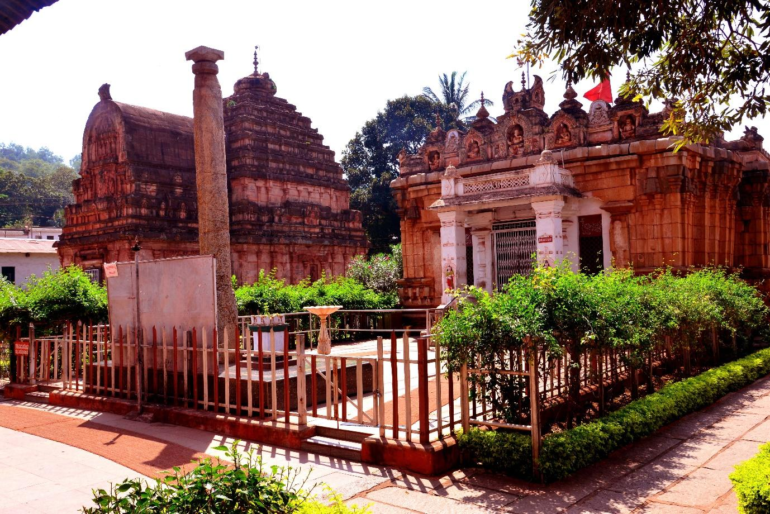The National Green Tribunal (NGT) has initiated suo motu proceedings concerning mining activities near the 1200-year-old Kumaraswamy Temple in Sandur, Ballari district, Karnataka.
This action follows a news report from June 19, 2024, which highlighted that the Karnataka government had recommended first-level clearance for a mining project adjacent to the Kumaraswamy Temple. The temple, dating back to the 7th or 8th century CE, is a protected site under the Archaeological Survey of India (ASI).
According to the report, the Karnataka Forest Department sought “In-Principle” (Stage-1) approval for mining a 70-acre forest area called Kumaraswamy Betta. The approved mining lease boundary is within 400 meters of the temple, raising concerns among local activists and residents.
The report notes that the government’s clearance for mining near the temple followed the withdrawal of a 1978 notification that banned mining within a 2 km radius of protected monuments. Activists argue that the proximity of mining operations, which involve heavy machinery and blasting, endangers the temple’s structural integrity.
Activists had previously challenged the project in the Karnataka High Court in August 2023. The court instructed an expert committee to assess the potential impact on the temple and its surroundings. Before the committee could finalize its findings, the Department of Mines and Geology decided to limit mining to 600 meters from the temple. Activists viewed this move as an attempt to bypass the expert committee’s recommendations, which had only provided a preliminary report on environmental risks without addressing the temple’s structural safety.
The news report raises significant concerns regarding compliance with the Environment Protection Act, 1986, and the Mines and Minerals (Development and Regulation) Act, 1957.
The Tribunal’s authority to address such issues suo motu has been upheld by the Supreme Court in the case of “Municipal Corporation of Greater Mumbai vs. Ankita Sinha & Ors.” (2021 SCC Online SC 897).
Consequently, the Principal Bench, consisting of Justice Prakash Shrivastava, Justice Arun Kumar Tyagi, and Dr. Afroz Ahmad, has included the following as respondents:
– Central Pollution Control Board, through its Member Secretary
– Department of Mines and Geology, Karnataka, through its Director
– Karnataka State Pollution Control Board, through its Member Secretary
– Ministry of Environment and Forest
– Archaeological Survey of India, through its Director General
– District Magistrate, Ballari
The Bench has issued notices to these respondents. Since the case pertains to the Southern Zonal Bench in Chennai, it has been transferred there for further action. The NGT office is directed to transfer the original records to the Southern Zonal Bench, with the matter scheduled for a hearing on October 14, 2024.
On the previous hearing date, the Counsel for the State of Karnataka indicated that similar issues are pending before the High Court and Supreme Court but has not provided details of these cases. The Counsel for respondent nos. 2 and 6 reported that relevant details and court orders from the High Court and Supreme Court have not yet been supplied by the concerned department.


